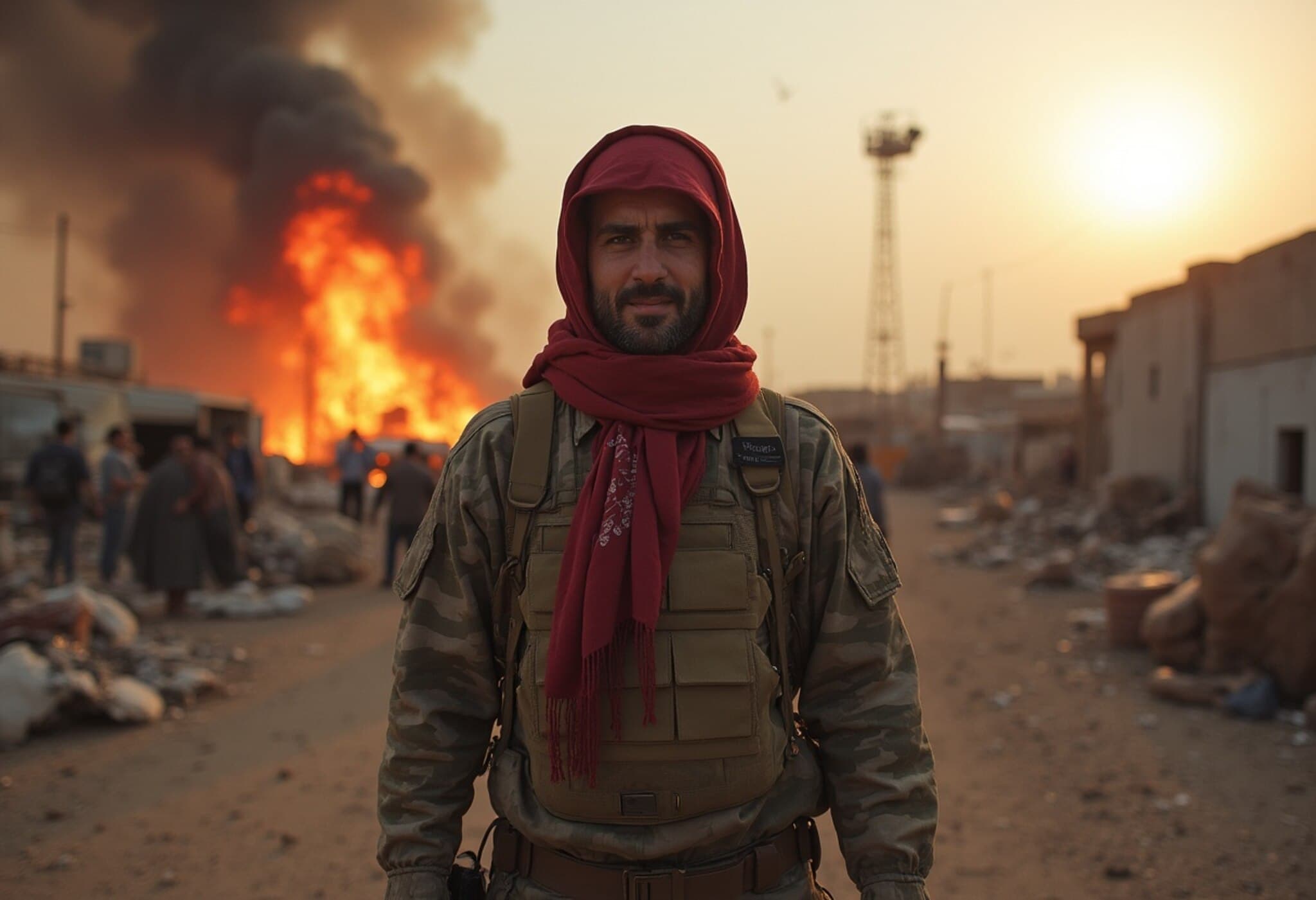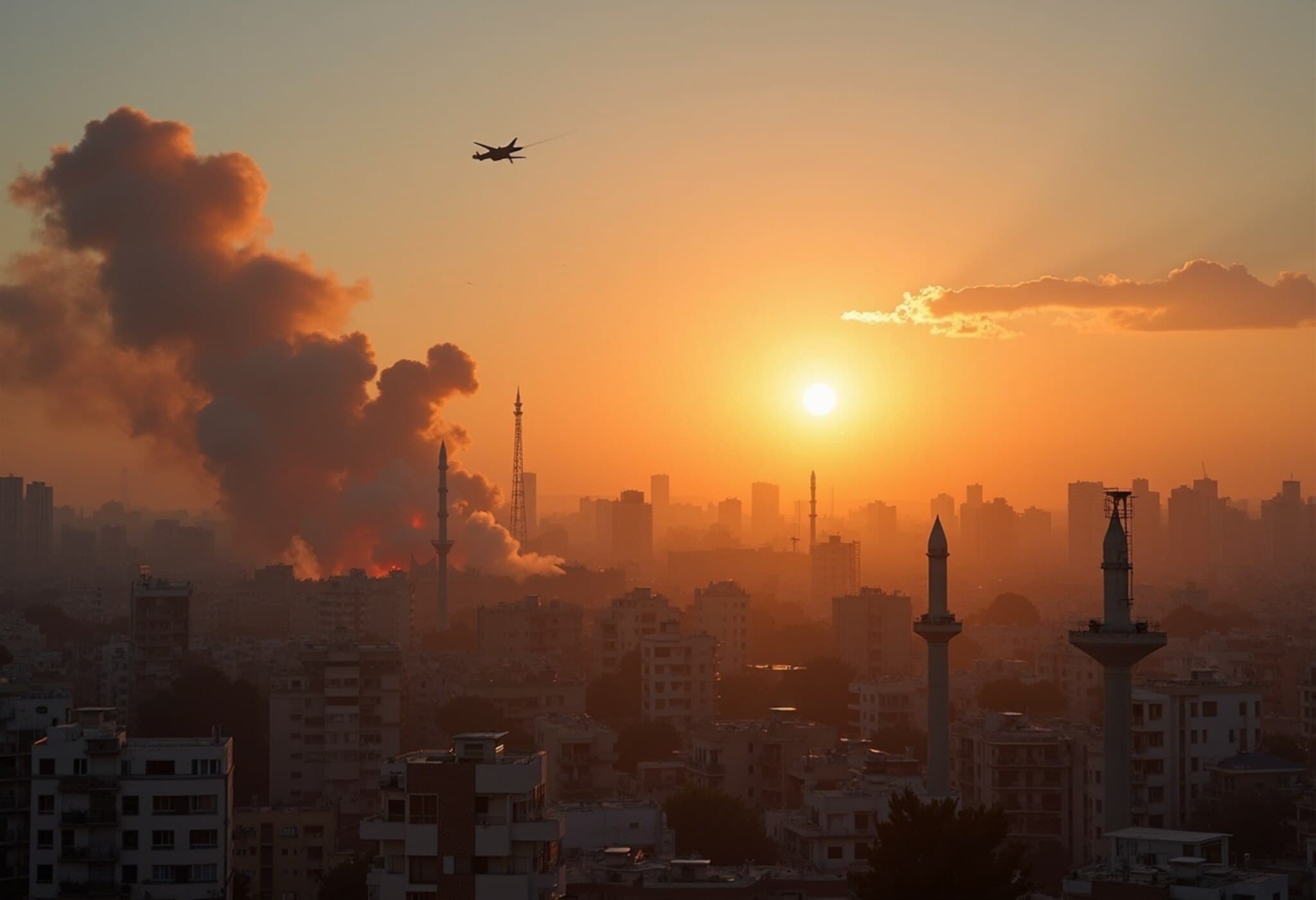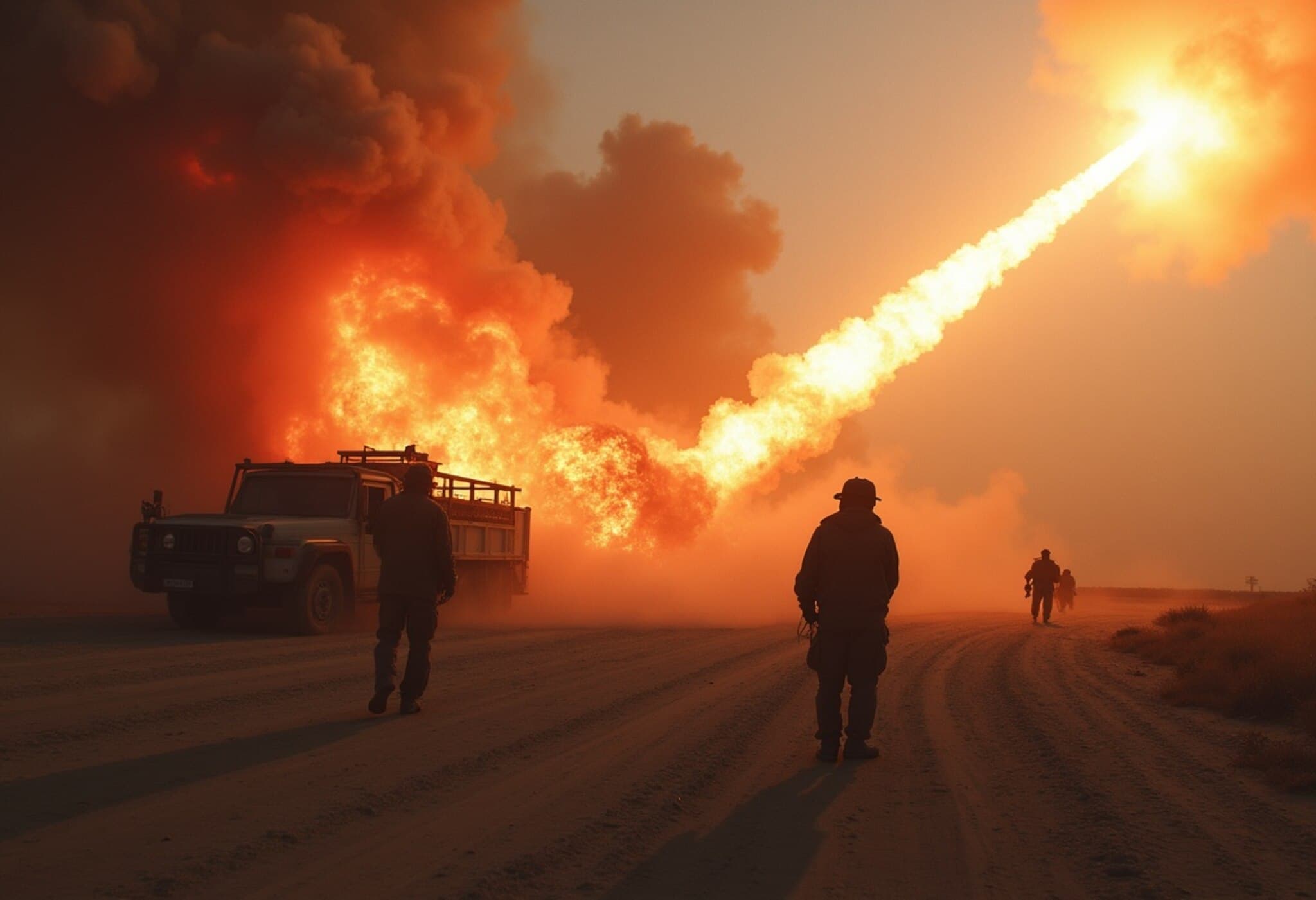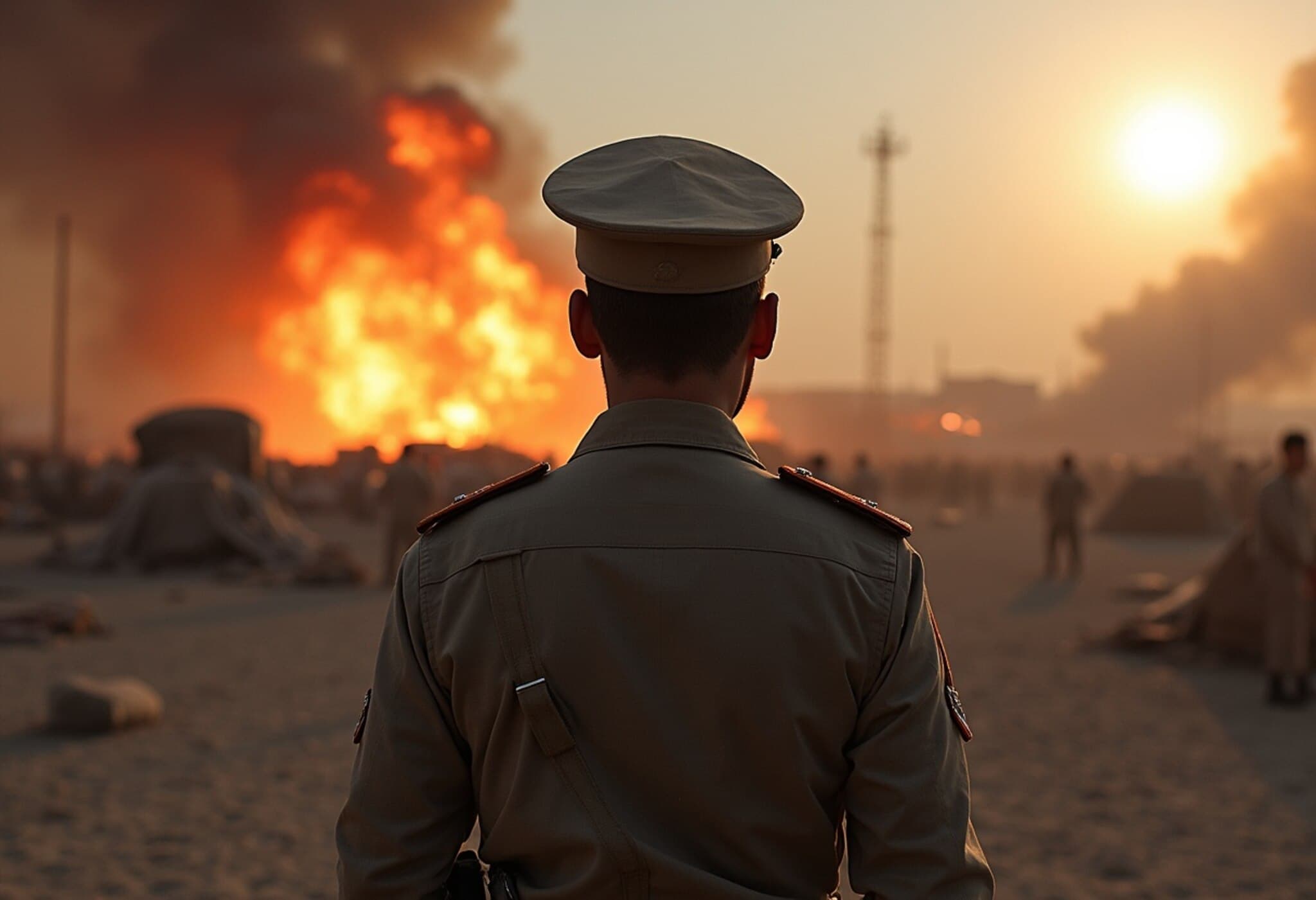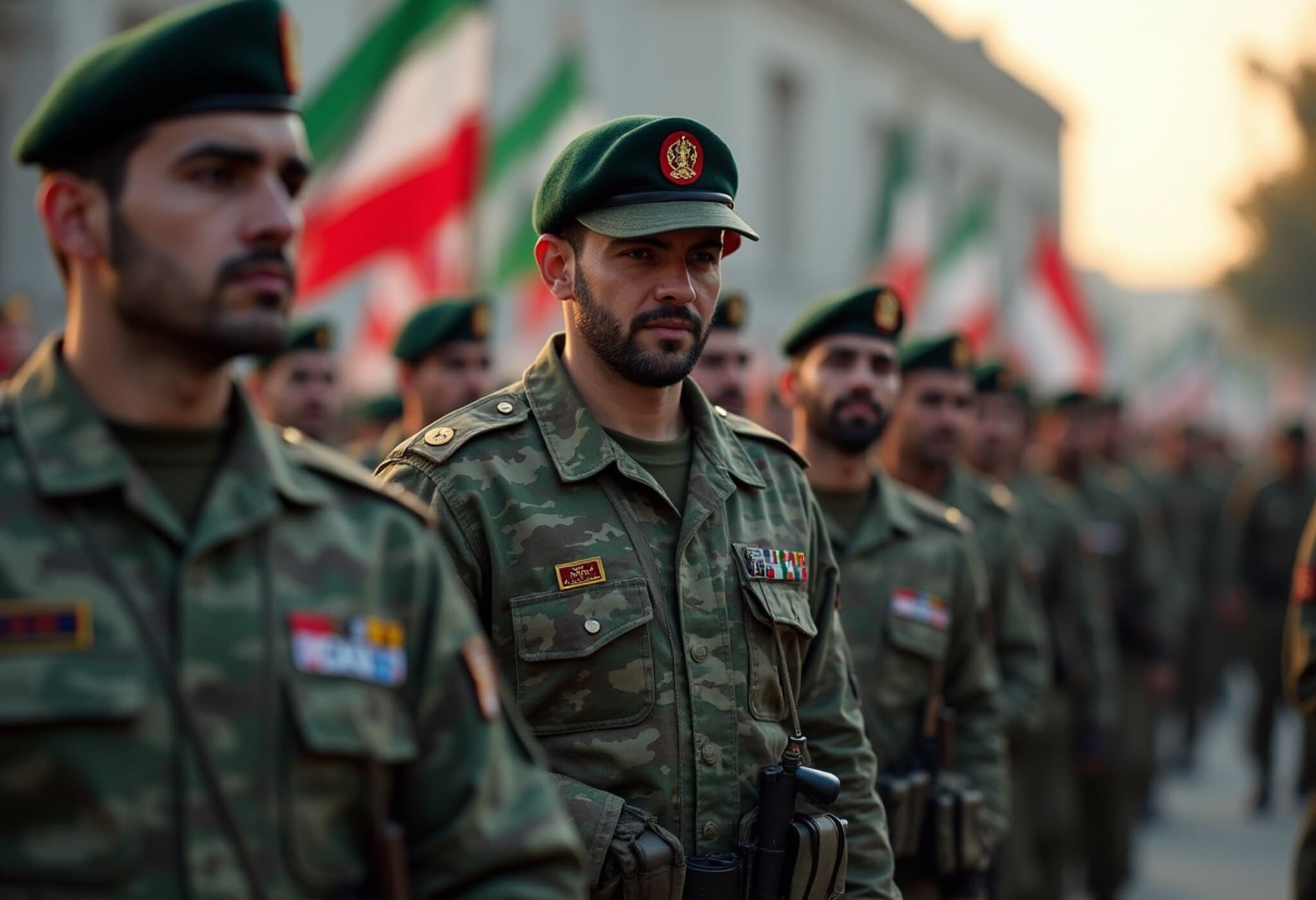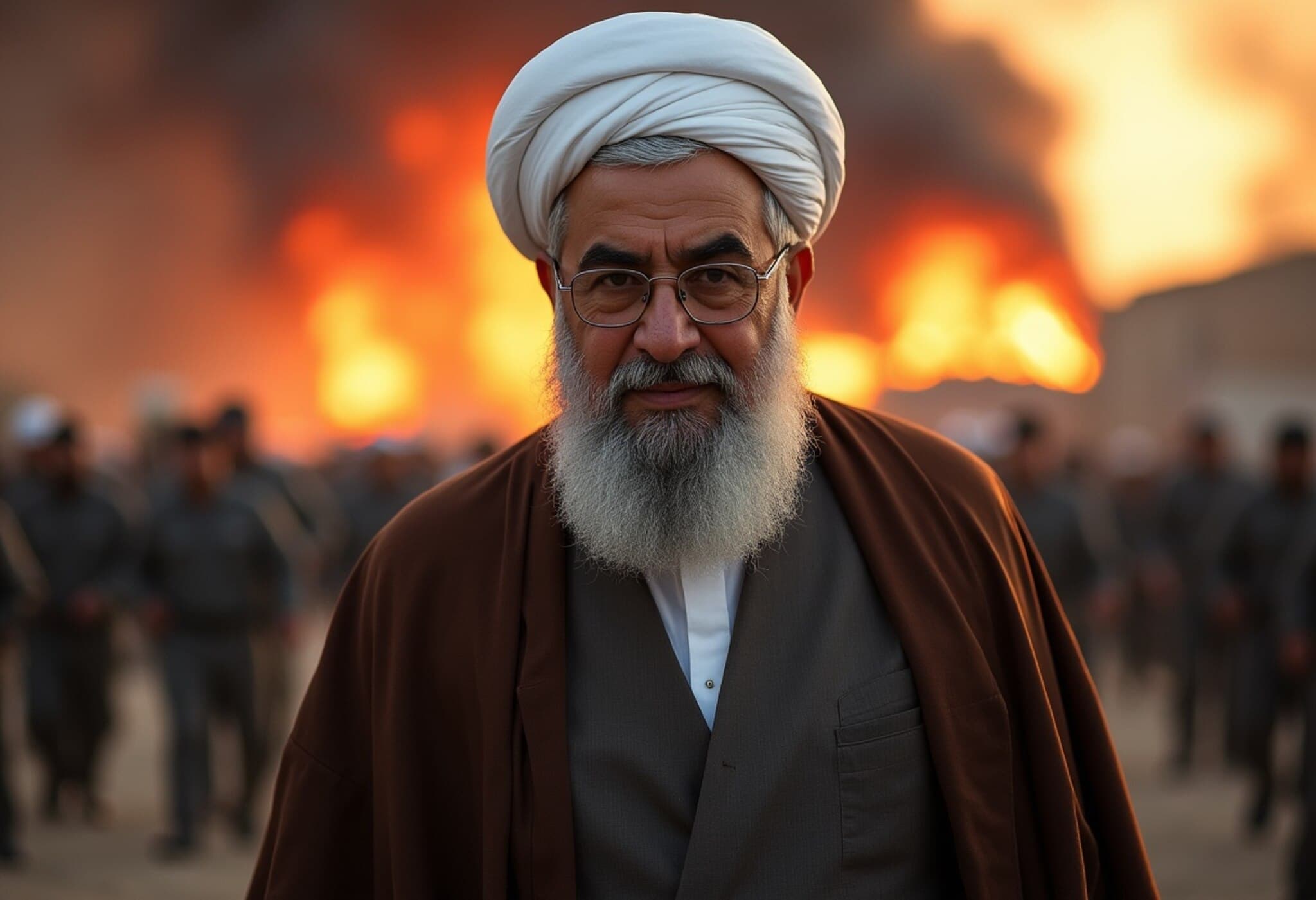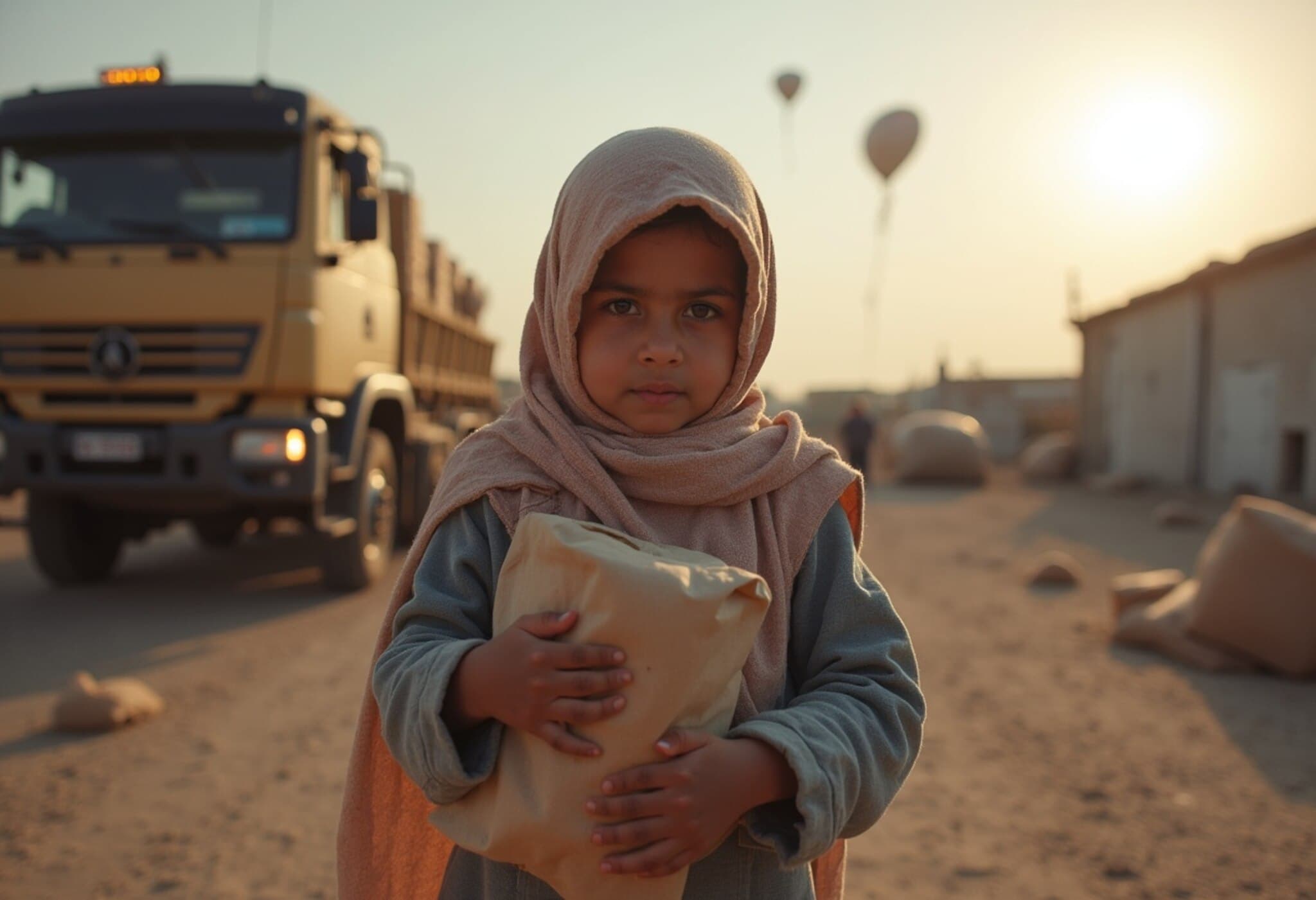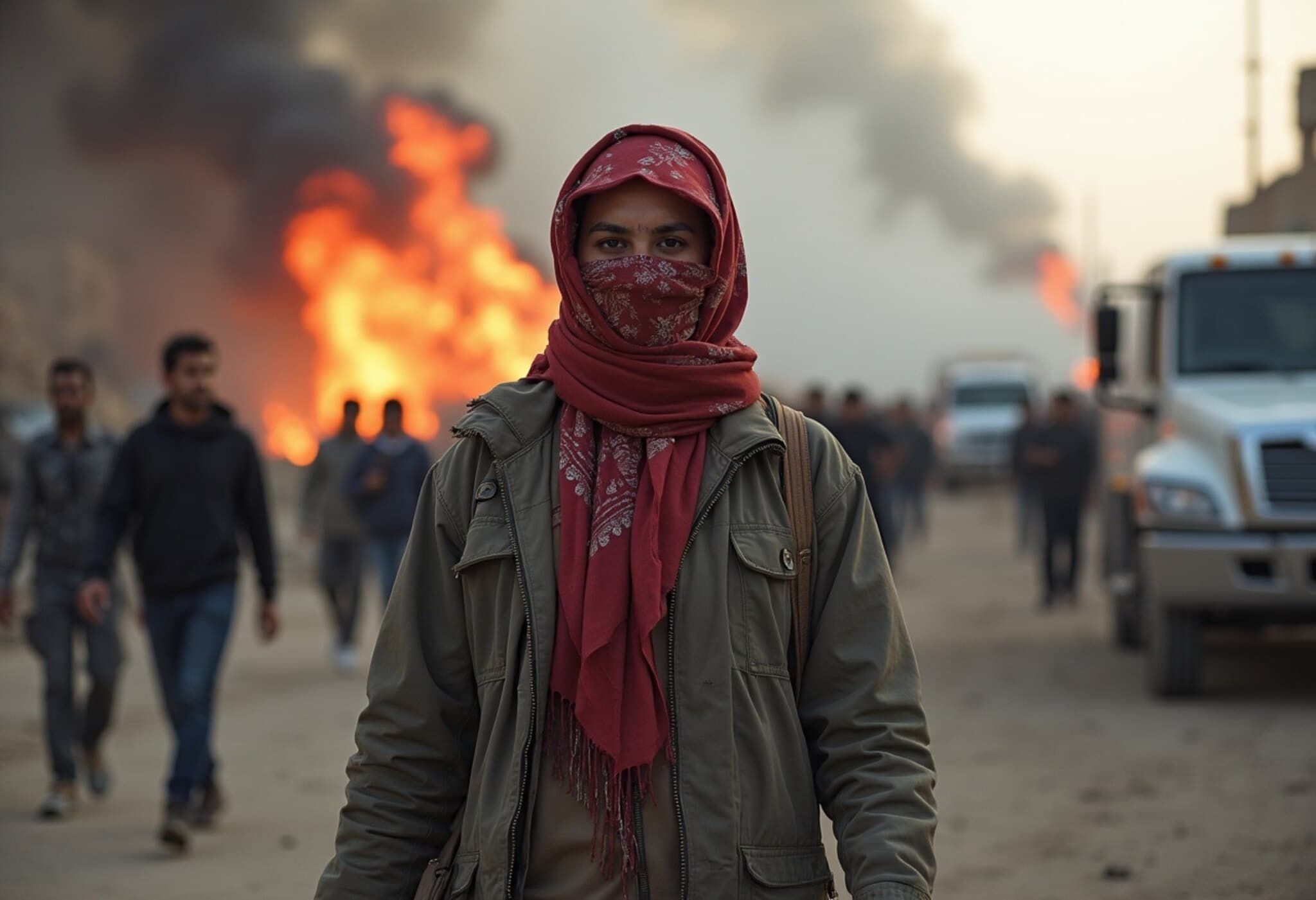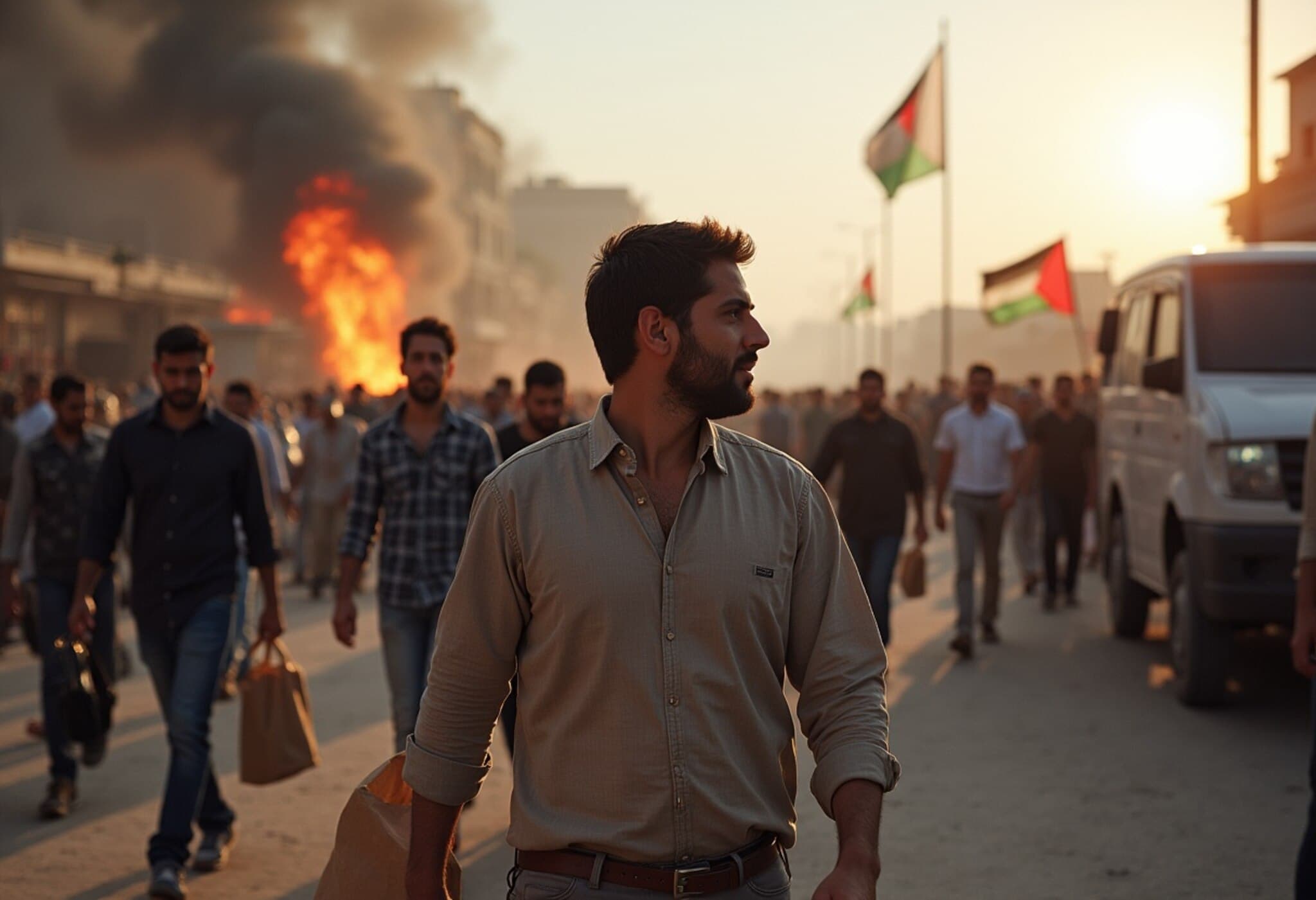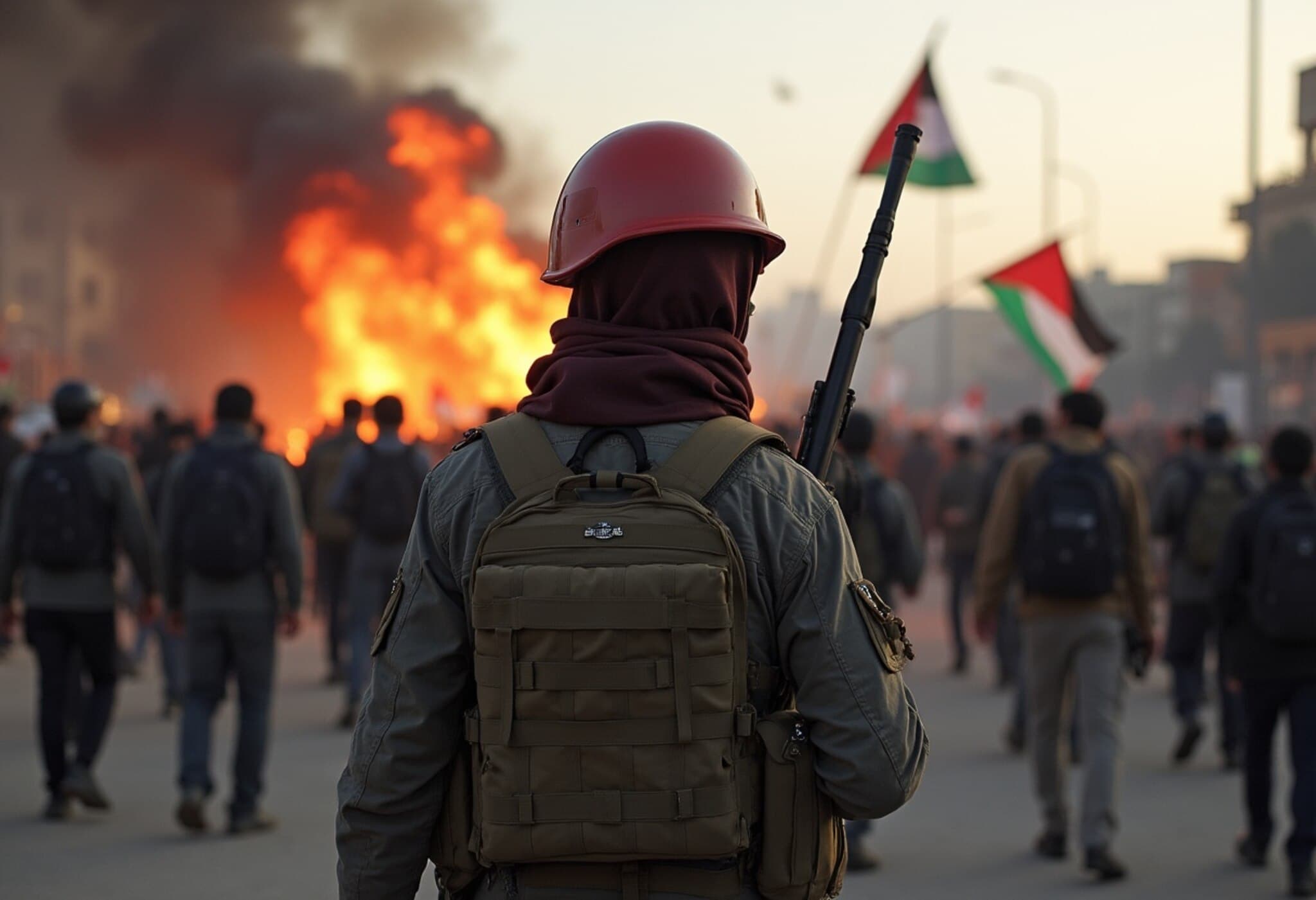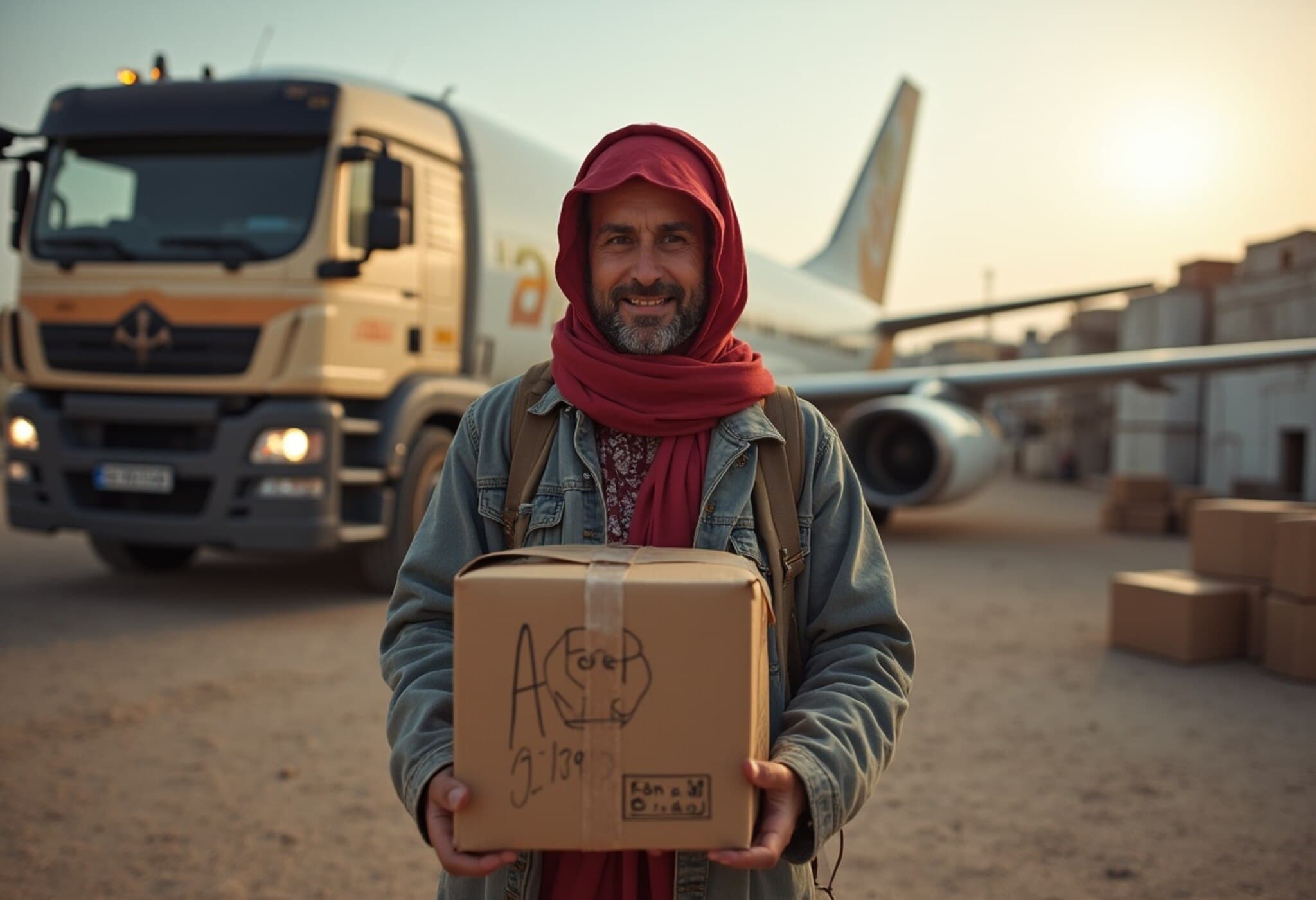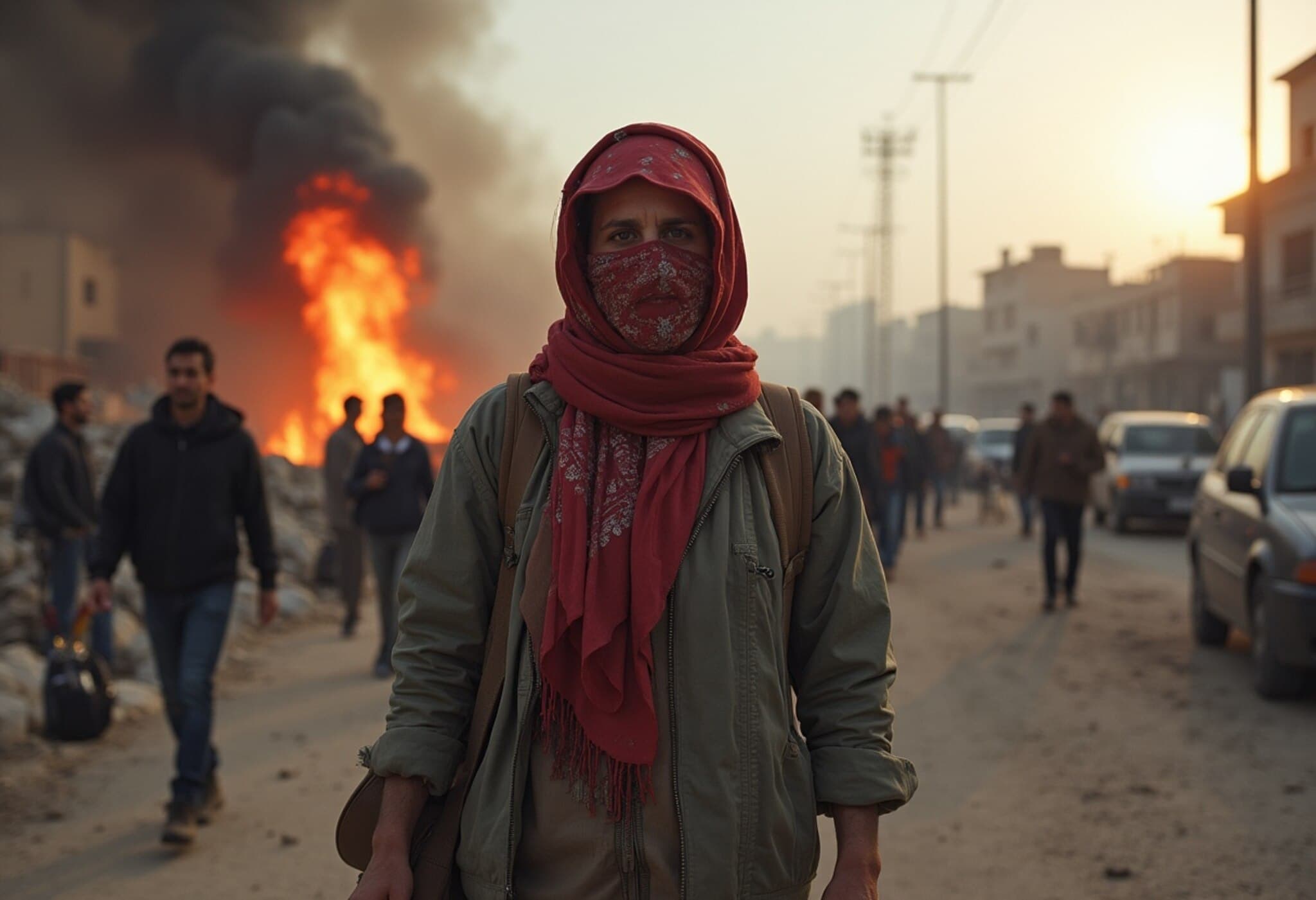Israel Announces Aid Airdrops as Gaza Faces Growing Hunger Crisis
As the humanitarian situation in Gaza continues to deteriorate, Israel’s military declared plans to commence airdrops of aid supplies starting Saturday night. This comes after mounting evidence of starvation and deadly attempts by Palestinians to access limited food distribution points amidst ongoing conflict and severe restrictions.
The military’s announcement also included intentions to establish humanitarian corridors to facilitate United Nations convoys, aiming to alleviate some pressure on the more than two million people stranded in Gaza, most of whom have been displaced within an increasingly crowded and damaged strip.
Humanitarian Pause and Aid Coordination
Although the military statement did not specify exact locations for these airdrops or corridors, it emphasized that “combat operations have not ceased” and insisted there is “no starvation” in the territory. Israel’s Foreign Ministry indicated that humanitarian pauses would begin Sunday in designated civilian centers, pausing fighting temporarily to allow aid distributions.
However, reports from Gaza paint a grim picture. Medical workers, weakened by hunger themselves, continue to treat malnourished patients under dire circumstances, while many Palestinians risk their lives dashing through hostile areas to reach aid. The majority depend on humanitarian assistance, making the promised airdrops a critical, if challenging, lifeline.
The Complexities Surrounding Aid Delivery
A key question remains about how these efforts will coordinate with existing aid frameworks. The military stated the airdrops would be done in cooperation with international organizations but did not clarify the role of the recently established, Israeli-backed Gaza Humanitarian Foundation (GHF), which aims to provide an alternative aid channel to the United Nations system. Johnnie Moore, chair of the GHF, reiterated readiness to assist in the effort.
Seizure of Australian Aid Vessel Sparks Maritime Law Debate
Adding to tensions, Israeli forces intercepted and seized the activist vessel Handala, which carried humanitarian supplies including baby formula, diapers, food, and medicine. The ship, with 21 activists from 12 countries onboard—among them Australians Robert Martin and Tania “Tan” Safi—was stopped approximately forty nautical miles off Gaza’s coast, in international waters according to activist groups.
The Freedom Flotilla Coalition condemned this action as a violation of international maritime law, noting the vessel was unarmed and engaged solely in delivering life-saving aid. Israeli authorities justified the seizure, claiming prevention of illegal entry into Gaza’s maritime zone. Passengers remain safe and are being taken to Israel’s shores.
Rising Casualties Amid Aid Distribution Attempts
Tragically, at least 53 Palestinians were killed overnight and into Saturday as they sought food and aid along Gaza’s borders. Several incidents involved Israeli gunfire near crossings such as Zikim and Morag, where civilians gathered hoping to obtain assistance. Eyewitnesses recounted harrowing moments as families, driven by hunger, faced deadly force while attempting to reach aid convoys.
Health officials at Gaza’s main hospital, Shifa, described a surge in casualties, with many wounded amidst chaotic aid distributions. These deaths underscore the urgency of establishing secure humanitarian access and raise difficult questions about the protections of civilians in conflict zones.
International Reactions and Warnings
Neighboring Jordan, along with the United Arab Emirates and the United Kingdom, are supporting the aid airdrops, which will prioritize essentials such as food and milk formula and include evacuations for children with urgent medical needs. However, Philippe Lazzarini, head of the United Nations agency for Palestinian refugees, cautioned that airdrops are a costly, inefficient solution that might inadvertently harm starving civilians or lead to aid diversion.
Despite Israel's claims of allowing unrestricted aid truck entry, the UN reports significant operational constraints from military restrictions and looting. The Hamas-run police, who previously secured aid deliveries, have been largely incapacitated following airstrikes targeting their operations.
Mounting Pressure and Stalled Ceasefire Talks
International criticism against Israel's blockade and aid policies has intensified, with over a hundred human rights organizations and numerous Western-aligned countries calling for immediate and more effective humanitarian access. Meanwhile, ceasefire negotiations between Israel and Hamas are at an impasse after the US and Israeli withdrawal of negotiating teams, raising concerns about the prospects for peace and further escalation of suffering.
Families on both sides continue to bear the brunt of this protracted conflict. In Gaza, an estimated 59,700 Palestinians have died since the war’s onset, with many being women and children, according to Gaza’s Health Ministry, widely regarded as a crucial source for casualty data despite operating under Hamas administration.
Expert Insight: The Human Costs and Policy Implications
The urgent need for humanitarian corridors and aid airdrops highlights not only the immediate life-and-death concerns but also the broader challenges facing conflict zones worldwide. According to experts in international humanitarian law, the blockade coupled with restricted humanitarian access may constitute collective punishment—an allegation that carries significant legal and diplomatic implications for Israel.
Moreover, the interception of aid vessels in international waters raises critical questions about respecting maritime law and humanitarian principles, potentially straining Israel’s relations with global partners. The involvement of multiple countries' activists reflects a growing international civil society response that refuses to stand idle amid escalating crises.
For policymakers, balancing security concerns with humanitarian imperatives is a delicate and urgent task. Transparent, impartial monitoring and multilateral cooperation will be vital to ensuring aid reaches those in need while mitigating risks of diversion to militant groups.
Editor’s Note
As aid efforts begin to ramp up in Gaza, the stark realities faced by the civilian population demand a nuanced understanding beyond statistics and rhetoric. The challenge lies in safeguarding lives without obscuring the complexities of conflict and governance. Readers should consider the long-term consequences of both military operations and humanitarian interventions, as well as the voices of affected communities whose lives depend on timely and effective aid. The unfolding situation calls for sustained international attention and pressure to prioritize human dignity and peace.

